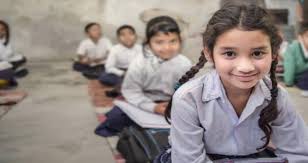
The Impact of Female Education on Society
The impact of female education on society can be seen in numerous ways. It improves the lives of women and, in many cases, improves the lives of entire communities. In many countries, greater education levels have correlated with lower poverty rates and improved health. But what about in other countries? How important is the impact of female education on society? Let’s look at some of the most notable examples of its positive effects. Let’s start with China, where female education improved the lives of the entire population.
In Nagar, women were supported to pursue higher education so that they could get better-paid jobs. Some mothers even worked double as hard in the fields to support their daughters’ university fees. However, this social isolation has led to higher depression rates in women. While these issues are still present, many people are optimistic about the future. Women are more likely to achieve their full potential with education. It is possible to change the future of the world by advancing your education.
In addition to promoting education for women, the project promotes social protection measures like cash transfers. Another initiative is the promotion of gender responsive pedagogies that remove gender stereotypes from learning materials. It also addresses other barriers to accessing gender transformative education, such as distance barriers and young mothers’ re-entry policies. In addition to promoting the benefits of education for women, the Girls Education Project is committed to improving the status of girls.
Despite its potential impact on the role of women in society, women in rural areas remain limited in decision-making. In rural Pakistan, the quality of education is often determined by the financial circumstances of the household. The presence of a male head in the household influences investment in education for sons. Consequently, daughters are not often given a voice in decision-making in the household. Even when they do, they are often forced to serve their husbands and children.
A well-educated woman is also less likely to suffer from domestic violence. Women in traditional developing countries are often seen as domestic commodities, and their education will allow them to delay early marriage and childbirth. This will also allow them to become better-educated, which will also increase their earning potential. If we all strive to make our society a better place, then we can make a positive impact on the lives of those around us.
During the COVID-19 pandemic, the prevalence of violence against women has increased, jeopardizing their health and safety. This is a huge barrier for female education and the empowerment of women worldwide. In this context, it is crucial to promote female education to combat this major social issue and improve their economic status. And with the rise of HIV and COVID-related issues, girls are especially vulnerable to sexual and gender-based violence.
Women who have secondary or higher levels of education are less likely to have children than uneducated women. This is true across countries, though the negative relationship varies widely across levels of education. Further, education levels differ from country to country, generating different incentives for women. Better-educated women are more likely to earn higher wages and have more opportunities, so the benefits from female education are greater. However, this negative relationship between higher levels of education and reduced fertility varies greatly, depending on the stage of development.
Best Hindi blog for trending Hindi posts and hindi story and gain knowledge. Must visit MastiKiPathshala


